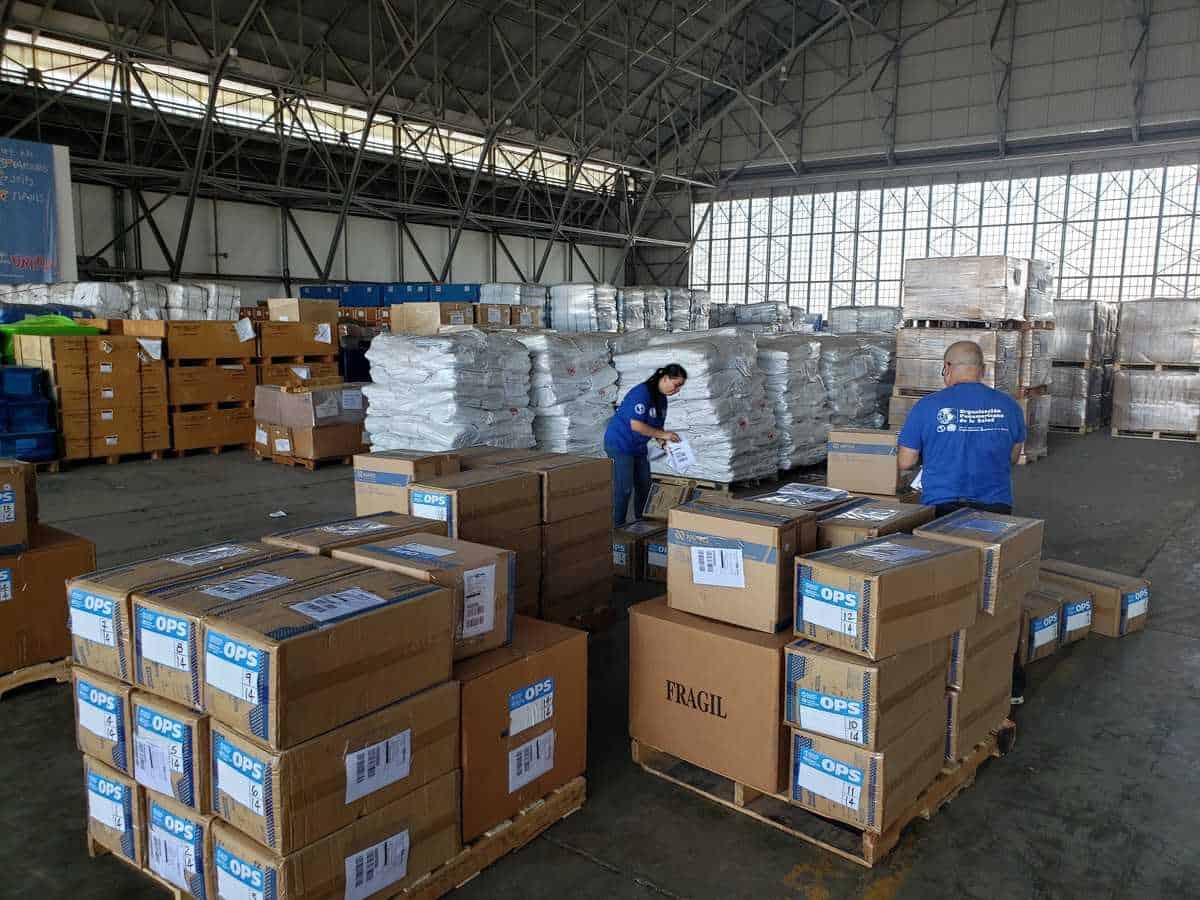A letter undersigned by leaders of the UN’s key humanitarian agencies issued an “urgent call” for funds to fight the globe’s novel coronavirus pandemic. It reiterated the UN Secretary General’s call for donors to give $2 billion to the organization’s COVID-19 response fund, plus an extra $350 million to immediately create a “logistics backbone” to support the distribution of international anti-coronavirus aid.
The UN Office for the Coordination of Humanitarian Affairs’ (UN OHCA) letter had one key message: “It is in everyone’s interest to stop the virus from spreading unchecked, destroying lives and economies, and continuing to circle around the world.” The humanitarian chiefs were firm that COVID-19 is a global pandemic, with global implications, requiring a generous and coordinated global response.
“In this race against an invisible enemy, all countries must fight back, but not all begin from the same starting line. In countries where the world’s most vulnerable need humanitarian aid and supplies to beat back the pandemic, canceled flights and disrupted supply routes hit disproportionately hard,” it read.
Highlighting this phenomenon in the MENA, UNICEF appealed on Monday for an additional $92.4 million to support its programs in the region. The UN children’s agency said the region has the highest number of children at risk from the pandemic’s fallout due to existing inequalities in areas such as conflict, poverty, and food insecurity.
UNICEF predicts a further 4 million children may be pushed into poverty by the global pandemic, joining the region’s 25 million children who already struggle to meet their basic needs.
UN Emergency Relief Coordinator Mark Lowcock said Yemen is of particular concern as the UN already feeds some 13 million in the country, and if funding and supply lines cannot be assured these programs could be cut. Included in those figures are 2 million malnourished and 400,000 acutely malnourished Yemeni children.
“If you don’t get support to them every month, you have a 50% increase in the mortality rate among those children (with severe malnutrition),” according to UNICEF’s Ted Chaiban. “It was already critical to address the needs of children in Yemen. With COVID-19, now you’ve got this extra layer of vulnerability,” the regional chief told the Associated Press on April 20.
Helping the most vulnerable helps all
Lowcock argues the renewed UN calls for donations are not purely about saving lives in war-ravaged places like Yemen or parts of Africa already wracked by famine.
“This isn’t just about compassion and empathy it’s about hard self-interest. Nobody is going to be safe, until everyone is safe. The places [where] humanitarian agencies work are potentially huge reservoirs where it is hard to manage the virus,” Lowcock warned in an interview with the Guardian.
Of the $2 billion that the UN secretary general requested to fight COVID-19 on March 25, the international community has been forthcoming with just $550 million in funding and assistance. The letter renewed calls for donations, and made an urgent request for $350 million “to enable a rapid scale-up of logistics common services.”
In the wake of global transport shutdowns, the World Food Programme (WFP) is setting up a “logistics backbone” to assure the flow of aid shipments and personnel to the places that need them the most, like Yemen, the Central African Republic, and South Sudan.
“WFP now urgently needs additional funding to establish the necessary transport hubs, charter vessels and provide aircraft for cargo, health workers and other essential staff,” the UN OHCA letter explained.
According to the humanitarian organization heads, “without these logistics common services, the global response could stutter to a halt.” The risks of that for the health of the entire world are great, but it remains to be seen if wealthy nations, struggling under the economic burden of COVID-19, will have the foresight and ability to provide the funds requested.

